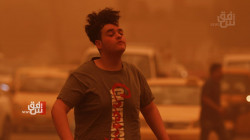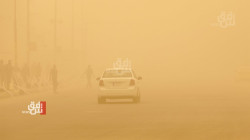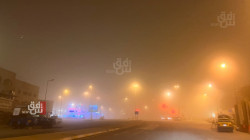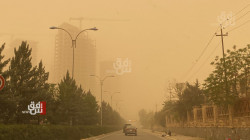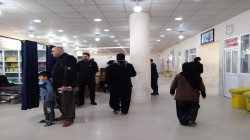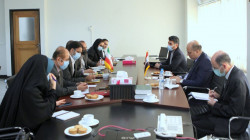Waves of displacement expected due to drought and dust storms, IOHR reports
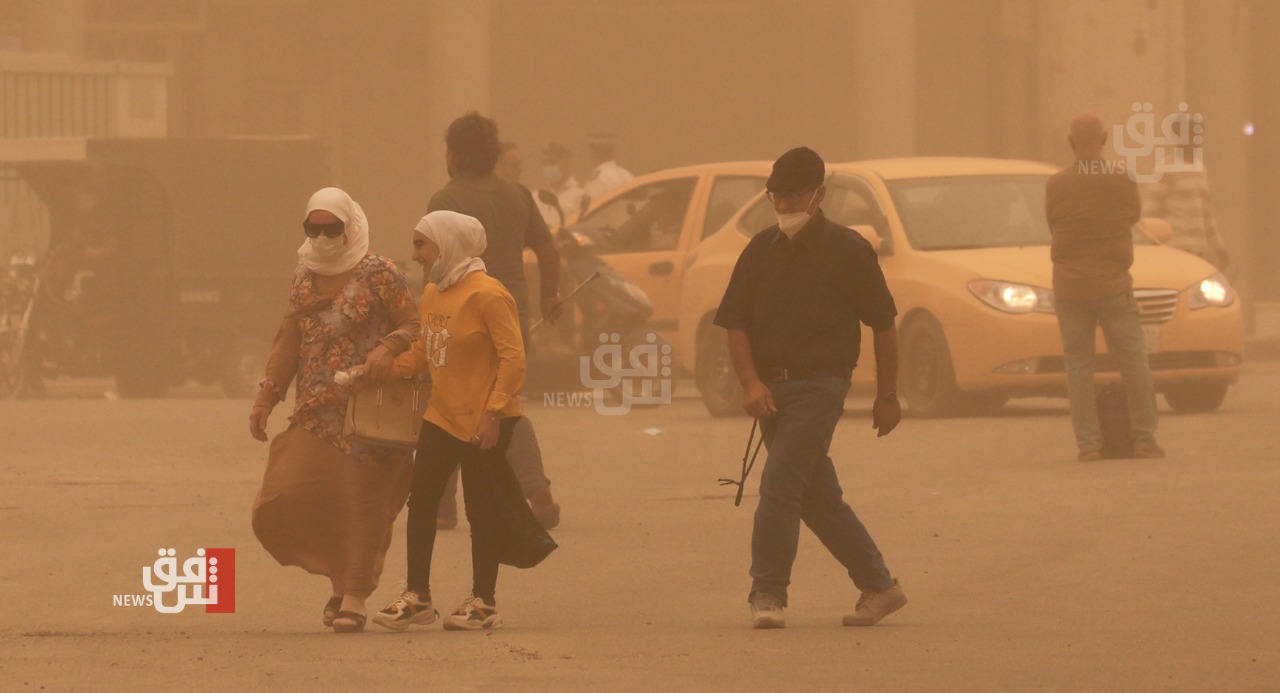
Shafaq News/ The Iraqi Observatory for Human Rights (IOHR) said Iraq could witness displacement waves due to drought and dust storms, especially in the southern regions.
The Observatory called the Iraqi government for taking "all necessary means to keep civilians safe and prevent the expected displacement."
Experts told the Iraqi Observatory that the authorities "neglect" climate change, which "exposes the country to an imminent disaster that may lead to new waves of displacement."
"The Iraqi Observatory for Human Rights reviewed a study by the Iraqi Ministry of Environment years ago. The Regional Director of the United Nations Environment Program - West Asia Office, Ayad Abu Al-Mughlai, said that "92% of Iraq's area is subject to desertification"."
"In parallel with a sharp decline in the levels of the Tigris and Euphrates rivers and the rest of the rivers in Iraq, and the drying up of Lakes Sawa in Muthanna Governorate and Hamrin in Diyala, sand storms are blowing and covering most of Iraq's cities almost daily or weekly, which has led to more than one death, and thousands of suffocation cases," IOHR said.
"On Thursday (May 5), the Ministry of Health recorded one death and at least 5,000 cases of suffocation when thick orange dust covered the governorates of Baghdad, Anbar, Kirkuk, Salah al-Din, Najaf, and that led to a temporary suspension of flights to and from Baghdad and Najaf airports."
"I suffer from suffocation and allergies whenever a dust storm hits," said Zulfikar Al-Mamouri, 28-year-old, during an interview with the Iraqi Observatory for Human Rights.
Experts expect new waves of displacement, affecting multiple groups, "unless a procedure is taken to mitigate the dust storms."
Those experts, who spoke to the Iraqi Observatory for Human Rights, included the bulldozing of orchards and agricultural lands to build houses or commercial complexes on them, global warming and the effects of oil extraction, and widespread drought among the causes of desertification and high temperatures.
During an interview with the Iraqi Observatory for Human Rights, Ayad Abdel Mohsen, a professor of environmental pollution at Al-Mustansiriya University in Baghdad, said, "The catastrophe is inevitably coming, and all Iraqis will suffer from its effects unless state agencies rush to do something."
Abdul Mohsen criticizes the failure of successive Iraqi governments to establish a monetary fund or a scientific body for disaster management. During his speech to the Iraqi Observatory for Human Rights, he also suggested implementing the afforestation program extending from Nineveh to Basra, provided that each governorate manages its specific sector only.
He added, "The Iraqis will do themselves wrong and be exposed to a great and enormous financial, health and environmental danger unless they hurry to address the problem. The disaster is clear to everyone now and will worsen as long as it is not faced with a quick scientific solution".
According to Iraqi officials, Iraq loses about 100,000 acres of agricultural land annually out of 32 million acres of agricultural land across the country, and all this is due to the so-called ill-considered "investment" that wiped out a large proportion of green agricultural areas in Baghdad and other cities.
As it blows, dust storms disrupt a lot of work, affecting the economy of groups that live on daily income and do not have enough money to live more than one day.
Ali Yahya, a young taxi driver and a father of two children who lives in a rent house in the Al-Shaab neighborhood in Baghdad, told the Iraqi Observatory for Human Rights: "When the dust storm comes, the streets are empty of pedestrians, and my work stops, so I go home thinking about how I will save the rent money, house expenses, and the children's different needs."
Yahya, coughing because of light dust that rose in the sky of Baghdad on Friday evening (May 13), added that "storms will make him lose his livelihood if they are repeated daily."
Iraq suffers from major drought and desertification after losing 30% of the water it used to obtain from the Tigris and Euphrates rivers. At the same time, an official report issued in 2018 expected Iraq to lose 50% of the water from these two rivers, which represent its lifeline due to the policies of Turkey and Iran, which account for water and build dams and projects on the headwaters.
This situation prompted thousands of people and families in southern Iraq to migrate to other regions, especially those who depend on agriculture and grazing to earn a living, and a total of 7 million out of about 40 million Iraqis were affected, according to figures provided earlier by President, Barham Salih.
Agricultural expert Adel Al-Mukhtar said, "The problem is not solved by securing vegetation cover and planting palms and trees. This is already not possible in light of the drought and water scarcity that Iraq suffers from, and we expect it to get worse."
During his speech to the Iraqi Observatory for Human Rights, he indicated that "Iraq suffers from a complex problem. We will lose water if we plant a vegetation cover. When we overcome the problem of dust storms, the depletion of water, which is already scarce, will harm us more so that we do not find drinking water in addition to agriculture".
A senior environmental official had previously expected that the number of dusty days in Iraq would rise to 272 days a year for two decades, reaching 300 dusty days a year by 2050.
The Iraqi Observatory for Human Rights calls on the state bodies concerned with climate, environment, and agricultural issues to give utmost importance to the problem of drought and desertification and mitigate the effects of sand and dust storms, and return to specialist scientists in these fields and to see the experiences of other countries that resemble Iraq with its climatic conditions.
The Observatory stresses the need for these departments to issue warnings and work on finding possible solutions, significantly since the expected numbers of dust affected may reach tens of thousands per month, and these are large numbers that the dilapidated Iraqi health system may be unable to assist.
The Observatory also urges municipal departments throughout Iraq to strictly prevent the cutting of trees and palms and to define a binding green space in new buildings as a condition in return for granting a building permit to them, as well as obligating industrial and commercial complexes, government departments and others to compensate for the trees they cut under the pretext of "exploiting the space" and planting new ones in alternate locations within the same facilities.
The Iraqi Observatory for Human Rights calls on the authorities responsible for determining Iraq's financial budget and its disbursement resources to allocate part of the budget for this year, 2022, and the years that follow to climate issues to avoid "the catastrophe of climate change exacerbation."
